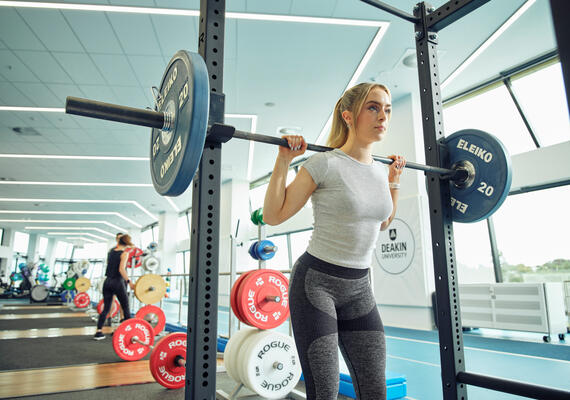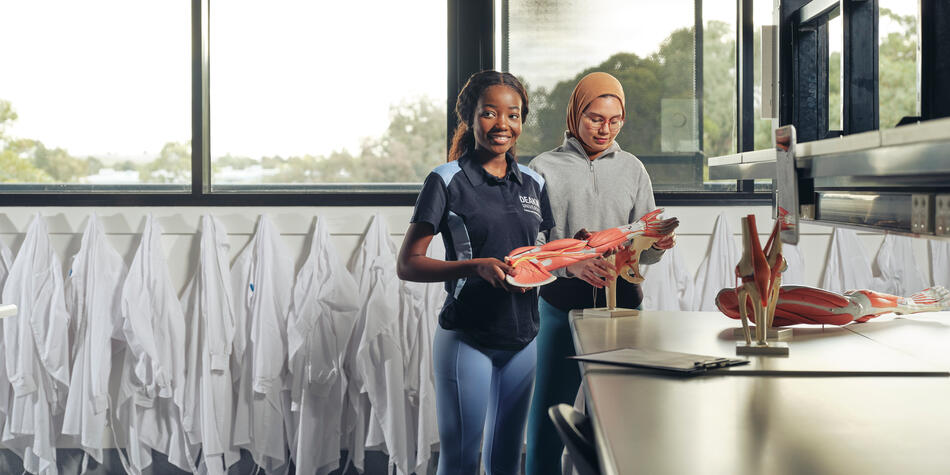
Balancing study at Deakin and research at Hawthorn FC
A typical day for Olivia starts with a burst of exercise or taking the dog for a walk. She then heads to Deakin’s Melbourne Burwood Campus to work on her PhD. This might include laboratory work analysing participant muscle and blood samples or sitting down to write her thesis. She takes her research with her into the real-world, spending afternoons at the Hawthorn Football club in pre-training meetings with the performance and medical team.
‘Once training starts, I monitor the players’ loads throughout the session and lead conditioning-based drills. Following the football component of training, the players head into the gym, where the strength and conditioning coaches and I help players with their strength and power training.’

